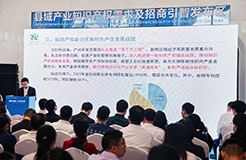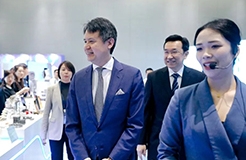没收到验证邮件?请确认邮箱是否正确或 重新发送邮件

#本文仅代表作者观点,文章不代表IPRdaily立场#
发布:IPRdaily中文网(IPRdaily.cn)
作者:Jeffery A. Handelman 律师 及Virginia Wolk Marino律师
供稿:Brinks Gilson & Lione律师事务所
原标题:美国联邦巡回法院扩大通用性商标名称测试后,饮料巨头对“零度”商标之争发回TTAB重新审理
本文案件中,饮料巨头Coca-Cola Co. 欲将“零度(Zero)”名称作为其品牌一部分进行专有注册,TTAB认为“零度(Zero)”名称不属于通用性商标,但在竞争对手上诉后,联邦巡回法院基于三点原因认为TTAB运用了不正确的法律标准并将该案发回TTAB重新审理:第一、TTAB在调查名称的通用性时提出错误问题;第二、TTAB未能评估名称描述性的程度;第三、TTAB未能采用严格角度审核证据。
一家公司是否可以拥有对无卡路里软饮料使用“零度(Zero)”名称的排他权?美国联邦巡回上诉法院将该问题发回至商标审理与上诉委员会(Trademark Trial and Appeal Board ,“TTAB”)重审,法院认为TTAB在最初解决该问题时既使用了错误的法律框架。
Coca-Cola Co.(简称“Coca-Cola”)欲将“零度(Zero)”名称作为其品牌一部分进行注册,由此引起Royal Crown Company, Inc. 和 Dr Pepper/Seven Up, Inc. (简称“Royal Crown”) 产生与其就该注册名称长达十几年之久的争议。Royal Crown与Coca-Cola均在饮料市场中竞争,并且双方都使用“零度(Zero)”名称与旗下多种饮料产品联系在一起。例如,Royal Crown使用DIET RITE PURE ZERO与其商标联系;Coca-Cola使用COCA-COLA ZERO 和SPRITE ZERO与其商标联系。在实践中,两家公司的商标均与最低或无卡路里饮料一起使用。俩家公司均对各自的“零度(Zero)”品牌饮料产品递交了美国联邦商标申请。Royal Crown在申请中放弃对“零度(Zero)”名称的权利(注:签署免责声明并不意味着移除标记中的主题,而仅是商标权人对这一主题不主张拥有排他权的声明。)Coca-Cola在申请中没有放弃对“零度(Zero)”名称的权利,相反,其递交了该名称获得显著性(Distinctiveness)的声明,并得到USPTO认可。
拓展:15 U.S.C. §1052(f) 商标获得显著性(Distinctiveness) 或第二含义( Secondary Meaning)
如申请注册的商标或服务标识名称本身不具有固有显著性(inherently distinctive),如描述性商标(descriptive mark,指仅仅描述了其使用商品的功能、质量、成份等特点的商标)、地名商标(geographic mark)和姓氏商标(family names,surname),该类商标只有在商标权人证明其商标在商业上已获得显著性或第二含义后,方可获得在主注册簿(Principal Register)上的注册。
自2007年起,Royal Crown对Coca-Cola含有“零度(Zero)”构词要素的19项申请提出异议(Oppositions),辩称当“零度(Zero)”一词的使用与Coca-Cola产品相联系时,该词仅具有描述性(Merely descriptive)或是通用名称(Generic)。Royal Crown要求Coca-Cola必须放弃该词的排他权,整体与Coca-Cola商标分离。多项异议被合并后,TTAB对Royal Crown的异议部分支持部分驳回。相关部分中,TTAB认为Royal Crown并未证实普通消费者在主要使用或理解“零度(Zero)”一词时会联系到商品种类中的软饮料、运动饮料或能量饮料,反而仅与Coca-Cola的ZERO系列饮料进行联系,因此这一词语并非通用名称。TTAB进一步认为Coca-Cola证实了当描述性词汇“零度(Zero)”作为商标的一部分用于软饮料、糖浆、浓缩液和制作软饮料的粉末时,该描述性词汇获得了显著性。基于此TTAB驳回了Royal Crown对Coca-Cola申请的异议。
上诉中,联邦巡回法院撤销了TTAB的驳回裁决,法院认为TTAB在制定“通用性商标测试(Test for genericness)”的构架中出现错误,未能确定Coca-Cola的“零度(Zero)”一词是否具有高度描述性(Highly descriptive)。特别是,联邦巡回法院发现TTAB在评估“零度(Zero)”名称的通用性时提出了错误的问题,TTAB未能考虑到如果相关公众理解一个词语指的是某类产品或服务的关键要素(Key aspect),这个词语对于该种类的产品或服务可以是通用性名称。联邦巡回法院进一步解释:如果公众对“零度(Zero)”一词的理解是当其与指定饮料名称结合时,指一种具有特定特征的子类别(Sub-group)或饮料类型,这足以使该词成为通用性名称。法院还提示TTAB没有考虑到相关消费者是否会将“零度(Zero)”一词视为软饮料、运动饮料或能量饮料子类别的通用性名称。发回重审中,联邦巡回法院指示TTAB检测:“零度(Zero)”一词是否因其指向至少一个子类别或类型饮料的关键要素而成为通用性名称。
在评论联邦巡回法院的意见时,Thomas J. McCarthy教授指出法院可能曲解了“兰哈姆法案(the Lanham Act)”所定义的通用性测试。例如,兰哈姆法案规定用于决定一项注册商标是否成为通用性商标的测试为:“对于相关公众而言注册商标的首要意义(Primary significance)……变成了商品或服务的通用性名称或与之相关的使用”15 U.S.C. § 1064(3)。值得注意的是,兰哈姆法案并不考虑商标是否指向产品或服务的“关键要素”,法案只是检测商标的首要意义是否为产品或服务的通用性名称。对通用性商标名称测试进行扩大,联邦巡回法院显然模糊了通用性名称和描述性名称的界限。如果一项名称描述了成分、质量、性质、功能、特征、目的或其使用的产品或服务,该名称则被考虑为仅具有描述性,TMEP 1209.01(b)。联邦巡回法院对“零度(Zero)”的通用性测试,既“指向产品的关键要素”与描述性商标测试中的“描述质量/特征等”非常接近。因此,法院这一决定可能造成商标权人及法院更难对描述性名称和通用性名称进行区分。
描述性名称和通用性名称间的区别在商标法中至关重要。一名标识所有人在展示描述性名称获得显著性后是可能获得商标权的,但通用性名称无法获得显著性。潜在地扩大通用性名称的目录,对于获得显著性的描述性名称而言,联邦巡回法院的做法会对其商标权造成危害。
联邦巡回法院还发现TTAB在分析“零度(Zero)”一词的描述性时出现错误。虽然TTAB确实陈述了普遍的观点,既高度的描述性要求更多实质证明其获得显著性,法院指责TTAB没有就“零度(Zero)”一词的描述程度做出正式调查,并且没有通过“严格角度(Exacting lens)”来评估Coca-Cola的证据。法院撤销了TTAB关于“零度(Zero)”获得显著性的裁决,法院解释TTAB必须对“名称的描述程度作出调查,在“通用性”至“仅具有描述性”的范围内,并且必须解释是如何评估证据记录以得出结论的。” 商标从业者在寻求确立高度描述性名称已获得显著性时,应注意联邦巡回法院的“严格角度”证据标准。
附:英文全文
Fight Over ZERO Trademark Remanded Back to Trademark Trial and Appeal Board After Federal Circuit Broadens Test for Generic Trademarks
Should one company have exclusive rights to use the term “Zero” in connection with no-calorie soft drinks? The U.S. Court of Appeals for the Federal Circuit (“Federal Circuit”) has remanded that question back to the Trademark Trial and Appeal Board (“TTAB”), finding that the TTAB erred in its first attempt to resolve that issue.
Royal Crown Company, Inc. and Dr Pepper/Seven Up, Inc. (“Royal Crown”) and The Coca-Cola Co. (“Coca-Cola”) have been involved in a dispute for over a decade concerning Coca-Cola’s attempt to register the term ZERO as part of a brand. Both Royal Crown and Coca-Cola compete in the beverage market, and both companies use the term ZERO in connection with various beverage products. For example, Royal Crown uses ZERO in connection with trademarks such as DIET RITE PURE ZERO, while Coca-Cola uses ZERO in connection with trademarks such as COCA-COLA ZERO and SPRITE ZERO. In practice, both Royal Crown’s and Coca-Cola’s marks are used with minimal or no-calorie drinks. Both Royal Crown and Coca-Cola filed U.S. federal trademark applications for their respective ZERO brand marks for beverage products. Royal Crown disclaimed the term ZERO in its applications. (The entry of a disclaimer does not remove matter from a mark, but is just a statement that the trademark owner does not claim exclusive rights to the matter.) Coca-Cola did not disclaim ZERO from its applications; rather, it submitted claims of acquired distinctiveness with respect to the term, which were accepted by the U.S. Patent & Trademark Office.
Royal Crown filed oppositions against nineteen of Coca-Cola’s ZERO-formative applications beginning in 2007, arguing that the term ZERO is merely descriptive or generic when used in connection with Coca-Cola’s goods. In essence, Royal Crown was requesting that Coca-Cola be required to disclaim the term apart from Coca-Cola’s marks as a whole. The oppositions were consolidated, and the TTAB sustained Royal Crown’s opposition in part and dismissed it in part. In relevant part, the TTAB found that Royal Crown did not establish that ordinary consumers primarily use or understand the term ZERO to refer to the genus of soft drinks, sports drinks, or energy drinks and, therefore, the term was not generic. Royal Crown Co., Inc. and Dr Pepper/Seven Up, Inc. v. The Coca-Cola Company, 2016 TTAB LEXIS 234, at *37-39 (TTAB May 23, 2016). The TTAB further found that Coca-Cola established that the descriptive term ZERO had acquired distinctiveness when used as part of a mark for soft drinks, and for syrups, concentrates, and powders for making soft drinks. The TTAB dismissed Royal Crown’s oppositions to Coca-Cola’s applications on these bases. Id. at 48, 50.
On appeal, the Federal Circuit vacated the TTAB’s dismissal, concluding that the TTAB erred in framing the test for genericness and failed to determine whether Coca-Cola’s ZERO marks were highly descriptive. Royal Crown Co. v. Coca-Cola Co., 892 F.3d 1358, 1366 (Fed. Cir. 2018). Specifically, the Federal Circuit found that the TTAB asked the wrong question in assessing the alleged genericness of the term ZERO, in that it failed to consider that “a term can be generic for a genus of goods or services if the relevant public . . . understands the term to refer to a key aspect of that genus.” Id. at 1367 (quoting In re Cordua Rests., Inc., 823 F.3d 594, 603 (Fed. Cir. 2016)) (emphasis in original). The Federal Circuit went on to explain that “if the public understands ZERO when used in combination with a designated beverage name to refer to a sub-group or type of beverage that carries specific characteristics, that would be enough to render the term generic.” Id. at 1368. The Federal Circuit also noted that the TTAB did not take into account whether the relevant consuming public would consider the term ZERO to be generic for a subcategory of soft drinks, sports drinks, or energy drinks. Id. In its remand, the Federal Circuit instructed that that the TTAB examine “whether ZERO is generic because it refers to a key aspect of at least a sub-group or type” of the class of beverages. Id.
In commenting upon the Federal Circuit’s opinion, Professor Thomas J. McCarthy noted that the court may have mischaracterized the test for genericness as defined by the Lanham Act. See, John L. Welch, Professor McCarthy Critiques the CAFC’s ZERO Decision, THE TTABLOG (June 27, 2018) (http://thettablog.blogspot.com/2018/06/professor-mccarthy-critiques-cafcs-zero.html). For example, the Lanham Act states that the test for determining if a registered mark has become generic is whether “[t]he primary significance of the registered to mark to the relevant public . . . has become the generic name of the goods or services on or in connection with which it has been used.” 15 U.S.C. § 1064(3). Notably, the Lanham Act test does not consider whether the trademark “refers to a key aspect” of the goods or services, it simply examines whether the mark’s primary significance is the generic name of the goods or services. By broadening the test for genericness, the Federal Circuit appears to blur the line between generic and descriptive marks. A mark is considered to be merely descriptive if it describes an ingredient, quality, characteristic, function, feature, purpose, or use of the goods or services with which it is used. See, e.g., TMEP 1209.01(b) (Oct. 2017). The Federal Circuit’s genericness test for the term ZERO, namely, whether the term “refers to a key aspect” of the goods comes very close to the “describes a quality/feature/etc.” test for descriptive marks. As a result, this decision may make it more difficult for trademark owners and courts to distinguish between descriptive and generic terms.
The distinction between descriptive and generic terms is of paramount importance in trademark law. It is possible for a mark owner to obtain trademark rights in a descriptive mark upon a showing of acquired distinctiveness, while generic terms are incapable of acquiring distinctiveness. By potentially expanding the category of generic terms, the Federal Circuit may be inadvertently endangering trademark rights in descriptive marks that have acquired distinctiveness.
The Federal Circuit also found that the TTAB erred in its analysis of the descriptiveness of the term ZERO. While the TTAB did describe the general proposition that higher levels of descriptiveness require a more substantial showing of acquired distinctiveness, the Federal Circuit chided the TTAB for its failure to make a formal finding as to the degree to which the term ZERO is descriptive and its failure to assess Coca-Cola’s evidence through an “exacting lens.” Royal Crown Co., 892 F.3d at 1369. The Federal Circuit vacated the TTAB’s finding on acquired distinctiveness, explaining that the TTAB must make “an express finding regarding the degree of the mark's descriptiveness on the scale ranging from generic to merely descriptive, and it must explain how its assessment of the evidentiary record reflects that finding.” Id. Trademark practitioners should take note of the Federal Circuit’s “exacting lens” evidentiary standard when seeking to establish that a highly descriptive term has acquired distinctiveness.
发布:IPRdaily中文网(IPRdaily.cn)
作者:Jeffery A. Handelman 律师 及Virginia Wolk Marino律师
供稿:Brinks Gilson & Lione律师事务所
编辑:IPRdaily赵珍 校对:IPRdaily纵横君
“投稿”请投邮箱“iprdaily@163.com”

「关于IPRdaily」
IPRdaily成立于2014年,是全球影响力的知识产权媒体+产业服务平台,致力于连接全球知识产权人,用户汇聚了中国、美国、德国、俄罗斯、以色列、澳大利亚、新加坡、日本、韩国等15个国家和地区的高科技公司、成长型科技企业IP高管、研发人员、法务、政府机构、律所、事务所、科研院校等全球近50多万产业用户(国内25万+海外30万);同时拥有近百万条高质量的技术资源+专利资源,通过媒体构建全球知识产权资产信息第一入口。2016年获启赋资本领投和天使汇跟投的Pre-A轮融资。
(英文官网:iprdaily.com 中文官网:iprdaily.cn)

本文来自IPRdaily.cn 中文网并经IPRdaily.cn中文网编辑。转载此文章须经权利人同意,并附上出处与作者信息。文章不代表IPRdaily.cn立场,如若转载,请注明出处:“http://www.iprdaily.cn/”

 共发表文章4685篇
共发表文章4685篇文章不错,犒劳下辛苦的作者吧
- 我也说两句
- 还可以输入140个字












